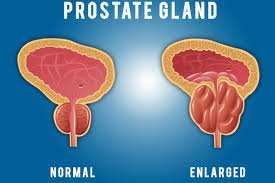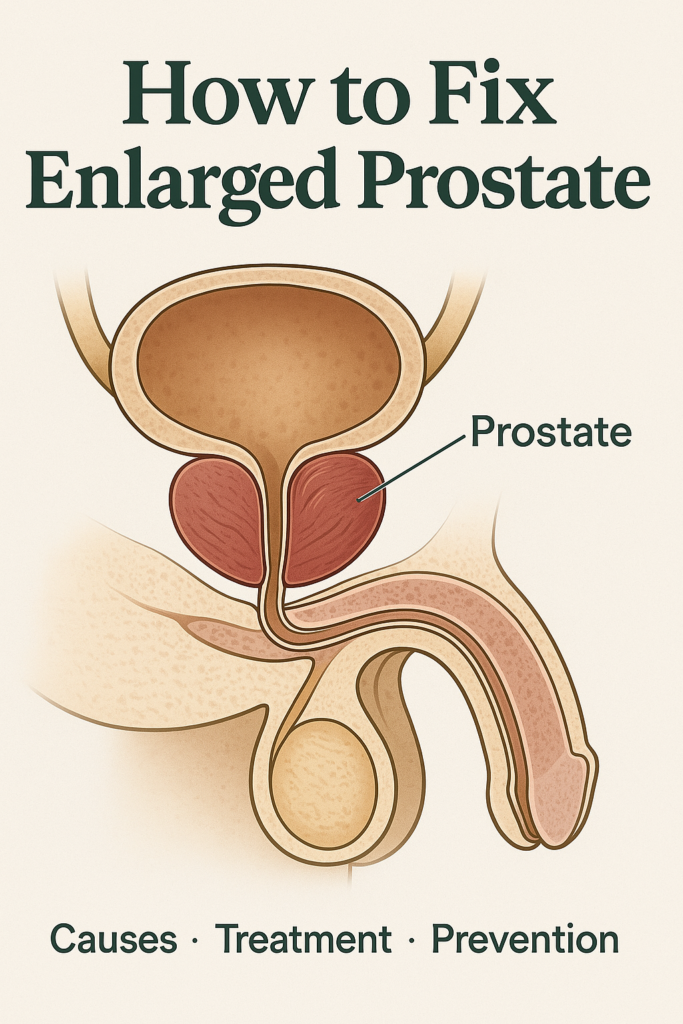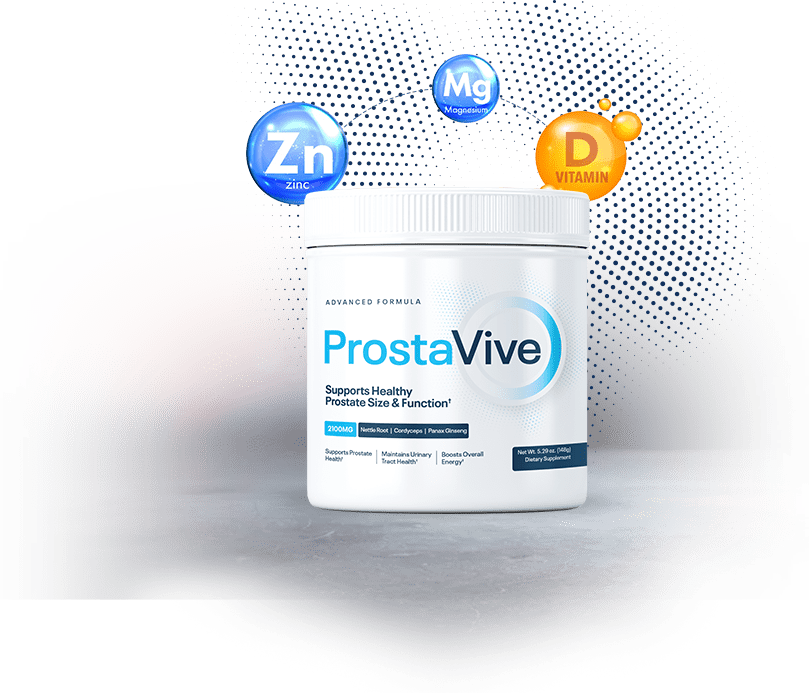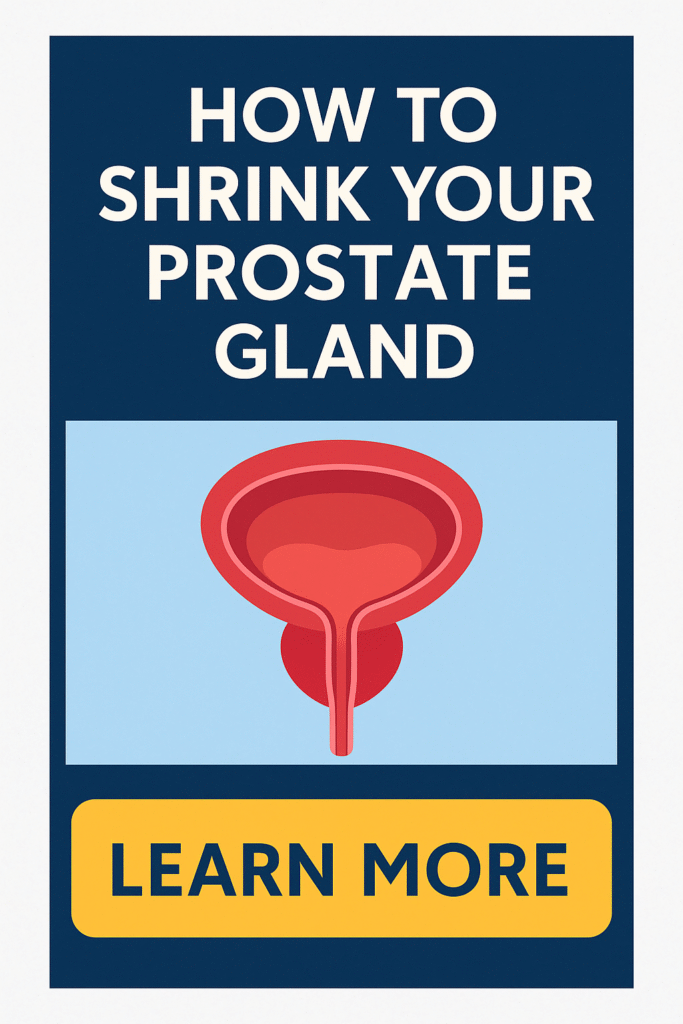How To Reduce Prostate Swelling

Imagine waking up to find that simple activities like urinating or sitting comfortably have suddenly become cumbersome. Prostate swelling, medically known as Benign Prostatic Hyperplasia (BPH), affects many men as they age, leading to various uncomfortable and sometimes serious complications. Understanding what BPH entails and recognizing its symptoms is crucial for effectively managing this condition.
Diagnosing prostate swelling typically involves medical tests and physical exams, which are vital to distinguish it from other more severe conditions. Fortunately, a range of treatment options exists, from medications and minimally invasive surgeries to lifestyle changes and natural remedies. Including certain foods in your diet and avoiding others can also play a significant role in managing BPH.
This article will explore myriad methods to reduce prostate swelling, highlighting both medical treatments and natural approaches. We’ll delve into preventive measures, such as lifestyle tips and dietary suggestions, explore clinical trials for cutting-edge treatments, and consider the benefits of natural supplements like ProstaVive. Whether you’re looking to understand, prevent, or treat BPH, this guide will provide the tools and insights you need.
Understanding Prostate Enlargement
Prostate enlargement is a common condition that affects the prostate gland, often leading to a variety of urinary problems as men age. The prostate, a small gland located below the bladder, surrounds the urethra, the tube responsible for carrying urine out of the body. As men get older, particularly after the age of 50, the prostate may start to grow larger, a condition known as an enlarged prostate or Benign Prostatic Hyperplasia (BPH). This growth can compress the urethra, causing urinary symptoms such as frequent urination, difficulty in starting and stopping urination, and a weakened urine flow. Aging plays a pivotal role in this process due to hormonal changes that affect prostate tissue growth. Understanding these underlying causes is essential for effective management and treatment of the condition.
What is Benign Prostatic Hyperplasia (BPH)?
Benign Prostatic Hyperplasia (BPH) is a non-cancerous increase in the size of the prostate gland. It is critical to recognize that BPH is distinct from prostate cancer; while both conditions affect the prostate, BPH does not involve the malignant growth of cells. Rather, BPH is a growth of normal prostate tissue. BPH is an extremely common issue, particularly among older men—most notably those over the age of 60—and its prevalence increases with age. As the prostate enlarges, it can exert pressure on the urethra, resulting in a series of urinary symptoms. Early recognition and understanding of BPH versus prostate cancer are crucial for proper diagnosis and treatment, ensuring that those affected can seek appropriate interventions to maintain their quality of life.
Common Symptoms and Complications
The symptoms of Benign Prostatic Hyperplasia can vary but tend to concentrate around urinary functions, affecting the bladder and urinary tract. Men with BPH often experience a frequent need to urinate, particularly at night, a condition known as nocturia. Additionally, they may find it difficult to start urination, go through periods of dribbling after urination, and notice a decrease in the strength of their urine stream.
If left untreated, these symptoms can lead to further complications. Prolonged urinary retention can cause bladder stones, infections in the urinary tract, and damage to bladder muscles. In severe cases, it might also result in kidney damage due to the backflow of urine. Prompt and effective treatment is vital to prevent these complications and maintain optimal prostate health. Understanding the symptoms and potential risks of BPH emphasizes the importance of seeking medical advice and evaluating treatment options to manage the condition effectively.
Take Control of Your Prostate Health
Thousands of men are choosing ProstaVive for natural, effective prostate support. With ingredients backed by science, it’s time to join them.
Diagnosing Prostate Swelling
Prostate swelling, often referred to medically as an enlarged prostate or Benign Prostatic Hyperplasia (BPH), is a common condition as men age. It involves the enlargement of the prostate gland, which can lead to urinary symptoms such as frequent urination, a weak urine stream, and urinary retention. Identifying prostate swelling typically begins with a medical consultation, where the doctor observes any presenting symptoms and discusses the patient’s medical history. Prostate swelling can significantly impact one’s quality of life, and if left unmanaged, the symptoms can worsen or lead to complications such as urinary tract infections or bladder stones. Diagnosing prostate swelling involves a combination of medical tests and physical examinations designed to assess the extent of prostate tissue growth and its impact on the bladder neck and urine flow.
Medical Tests for BPH
Identifying and diagnosing BPH requires a series of targeted medical tests that help evaluate the prostate’s size and functionality. A common and crucial test is the Prostate-Specific Antigen (PSA) test, which measures the PSA levels in the blood—a marker that could indicate the presence of enlarged prostate or potential prostate cancer. Another key diagnostic tool is the ultrasound, often performed rectally, to get a detailed image of the prostate size and structure. Urine flow tests are also integral in assessing the severity of urinary symptoms by measuring the speed and volume of urine flow. These diagnostic tests provide essential information that guides further treatment options, ranging from natural remedies to surgical interventions, thus helping determine how best to manage and fix an enlarged prostate.
Physical Exams and Their Importance
Physical examinations play a crucial role in diagnosing prostate problems and are often the first step in a comprehensive evaluation. One of the primary examinations is the Digital Rectal Exam (DRE), where a healthcare provider, typically a doctor, manually feels the prostate gland through the rectal wall to assess its size, shape, and texture. Although it might be uncomfortable, the DRE is a quick and critical procedure that can offer early indications of prostate swelling or other abnormalities. The importance of such physical exams lies in their ability to offer immediate insights into prostate health, allowing for timely interventions that can prevent complications or the progression of symptoms. Regular physical exams, combined with medical tests, form a comprehensive approach to monitoring prostate health, ensuring any prostate growth is identified and addressed promptly to maintain a high quality of life.
Know Your Options, Act Early
Don’t wait for symptoms to worsen. ProstaVive offers a clinically supported approach to naturally manage prostate swelling and discomfort.
Treatment Options for BPH

Benign Prostatic Hyperplasia (BPH), commonly known as an enlarged prostate, is a prevalent condition affecting many men as they age. This prostate gland enlargement can lead to uncomfortable urinary symptoms by obstructing the flow of urine, causing urinary retention and frequent urination. Treatment varies based on the severity of symptoms and can range from simple lifestyle modifications to advanced surgical procedures. Natural remedies often focus on diet and exercise, while medical treatments may involve medications or minimally invasive surgical options. Determining the best course of action requires a thorough understanding of the available treatment options, which can help improve the quality of life for those affected by BPH.
Medications
When it comes to managing BPH, medications are often the first line of treatment. Commonly prescribed medications include Alpha blockers and 5-Alpha reductase inhibitors. Alpha blockers work by relaxing the bladder neck muscles and prostate muscle fibers, making urine flow easier. However, they may cause side effects such as dizziness or fainting. On the other hand, 5-Alpha reductase inhibitors reduce prostate size by preventing hormonal changes that lead to prostate growth. They may take several months to show effect but can also cause sexual dysfunction. Discussing the benefits and potential side effects with a healthcare provider can guide the decision on which medication might be suitable.
Minimally Invasive Surgical Therapies
Minimally invasive surgical therapies are considered when medication or lifestyle changes fail to provide relief. These outpatient procedures are designed to reduce excess prostate tissue, thereby improving urinary symptoms and reducing prostate swelling. Options might include transurethral microwave therapy, which uses microwaves to shrink the prostate, or transurethral needle ablation, utilizing heat. These procedures typically have a quicker recovery time and lower risk of complications compared to traditional surgery. They are suited for those with moderate to severe symptoms who wish to avoid the risks associated with more invasive surgical treatments.
Lifestyle Changes to Consider
Adopting certain lifestyle changes can significantly alleviate BPH symptoms and reduce prostate swelling naturally. A balanced diet rich in fruits, vegetables, and healthy fats can lower prostate PSA levels. Regular exercise improves bladder muscle strength and urinary function, while stress-reduction techniques, like yoga or meditation, can prevent symptoms from worsening. Additionally, reducing caffeine and alcohol intake can help minimize urinary tract symptoms. Small adjustments, such as limiting fluid intake before bedtime and incorporating regular physical activities, are practical steps to enhance prostate health and improve daily life for those dealing with BPH.
Searching for a Non-Invasive Option?
If you’re not ready for surgery or prescription drugs, consider ProstaVive as a gentle yet powerful natural alternative.
Natural Remedies and Dietary Changes
Prostate swelling, often associated with benign prostatic hyperplasia (BPH), can significantly impact the quality of life, leading to urinary symptoms such as frequent urination and incomplete bladder emptying. Naturally reducing prostate swelling involves a combination of lifestyle changes and dietary adjustments aimed at promoting overall prostate health. By integrating certain foods and natural remedies, one can manage and potentially alleviate the symptoms associated with an enlarged prostate. While medical interventions are available, exploring natural options first can offer a non-invasive way to ease discomfort and enhance prostatitis management.
Foods That May Help Manage BPH
Incorporating specific foods into your diet can help manage BPH symptoms and reduce inflammation of the prostate glands. Foods rich in omega-3 fatty acids, like oily fish such as salmon and mackerel, can combat inflammation and promote prostate health. Similarly, pumpkin seeds, high in zinc and other essential nutrients, have been shown to improve prostate function and reduce urinary tract symptoms. Tomatoes, rich in lycopene, are powerful antioxidants that can help lower PSA levels, thus improving prostate gland health. Additionally, nuts like almonds and walnuts offer healthy fats and can support overall hormonal balance, crucial for mitigating prostate growth.
Foods to Avoid for Prostate Health
While certain foods benefit prostate health, others may exacerbate symptoms or contribute to increased prostate swelling. Red and processed meats are common culprits that can worsen inflammation and should be consumed in moderation. These foods may contribute to a higher risk of prostatic hyperplasia and even prostate cancer if consumed in excess. Additionally, high-fat dairy products can elevate hormone levels, intensifying symptoms worse for an enlarged prostate. Caffeinated and alcoholic beverages are other items to limit, as they can irritate the bladder muscle and exacerbate urinary symptoms. By minimizing the intake of these foods, individuals can support a healthier prostate and maintain improved urine flow.
Understanding and implementing these dietary adjustments can significantly impact managing and reducing prostate swelling naturally. By consciously choosing beneficial foods and steering clear of those that might hinder prostate health, individuals can take a proactive approach toward easing BPH symptoms and enhancing their quality of life.
Support Your Diet with ProstaVive
Even the healthiest diet can use a little boost. ProstaVive includes nature’s most effective prostate-supporting ingredients like Saw Palmetto and Lycopene.
Preventive Measures for Prostate Enlargement

Prostate enlargement, medically known as benign prostatic hyperplasia (BPH), is a common condition affecting men as they age. While this condition is not cancerous, it can lead to uncomfortable urinary symptoms and affect quality of life. The prostate gland enlarges and can press against the bladder neck and urethra, causing urinary tract symptoms, such as frequent urination, weak urine flow, and urinary retention. To prevent or slow the progression of prostate enlargement, men can adopt several proactive strategies that may support prostate health and mitigate some of these symptoms over time.
Lifestyle Tips for Prostate Health
Embracing healthy lifestyle habits is crucial in maintaining optimal prostate health and potentially preventing prostate enlargement. Regular physical activity is one of the key components; engaging in moderate exercise such as brisk walking, swimming, or cycling for at least 30 minutes a day helps maintain a healthy weight, which can influence prostate health. Smoking cessation is equally important, as smoking has been linked to worsened urinary symptoms and overall prostate growth.
Managing stress through techniques like meditation, breathing exercises, or yoga can also contribute positively to prostate health. Chronic stress may exacerbate prostate issues, and finding effective ways to manage it can prevent symptoms from getting worse. Regular medical appointments, including a physical exam or rectal exam, enable early detection and management of prostate changes. Additionally, moderating alcohol and caffeine intake can reduce bladder irritation, potentially mitigating urinary symptoms and promoting better urine flow.
The Role of Diet and Nutrition
Nutrition plays an integral role in fostering prostate health and preventing prostate-related problems. A diet rich in fruits, vegetables, and whole grains is associated with promoting a healthy prostate. Cruciferous vegetables like broccoli, cauliflower, and Brussels sprouts contain compounds that have been linked to lowering prostate PSA levels and reducing the risk of prostate issues.
Incorporation of foods higher in Omega-3 fatty acids, such as fatty fish like salmon, sardines, and mackerel, may provide anti-inflammatory benefits, potentially mitigating prostate gland swelling. Additionally, incorporating foods such as tomatoes and watermelon, which are high in lycopene, has been suggested to promote prostate health. Reducing red meat consumption and avoiding high-fat dairy products may also lower the risk of prostate enlargement.
Consistently focusing on nutritional choices not only supports prostate health but can also improve overall well-being, aiding in the prevention of enlarged prostate capabilities known to affect urinary tract functions and the bladder muscle. A balanced diet, combined with a healthy lifestyle, serves as a robust preventative measure against BPH and supports maintaining a good quality of life as men age.
Prevention Starts Today
Taking action early can make all the difference. ProstaVive supports long-term prostate health and helps reduce future complications.
Exploring Clinical Trials
Clinical trials play a pivotal role in the medical landscape, serving as the cornerstone for developing new treatments and therapies. When it comes to Benign Prostatic Hyperplasia (BPH), a common condition characterized by prostate swelling that affects urinary function and quality of life, clinical trials are instrumental. They not only facilitate the testing of new treatments but also pave the way for more effective management strategies, enhancing the lives of those afflicted. The importance of clinical trials lies in their ability to rigorously evaluate the safety and effectiveness of novel interventions, obtaining valuable data that guides future healthcare decisions.
How Clinical Trials Can Advance BPH Treatment
Participating in clinical trials for BPH can be immensely beneficial for both individuals and the broader medical community. Clinical trials provide a unique opportunity to contribute to the advancement of medical knowledge, potentially leading to new and improved prostate therapies. By enrolling in these trials, participants help researchers gather essential data that aids in understanding how different treatment options affect prostate health.
Such trials are crucial in assessing how new drugs, surgical techniques, or even lifestyle interventions can alleviate symptoms associated with an enlarged prostate. For those experiencing disruptive urinary tract symptoms, involvement in these trials may offer access to cutting-edge treatments before they become widely available, potentially improving their quality of life. Ultimately, participant feedback and clinical outcomes gleaned from these trials are integral to refining existing treatment protocols and developing innovative approaches to managing BPH.
Considerations for Participation
Before enrolling in a clinical trial for BPH, it is necessary to weigh several critical factors. First and foremost, understanding the potential risks involved is crucial. Clinical trials, particularly those in earlier phases, might carry unknown side effects, and it is important for prospective participants to discuss these potential risks with healthcare professionals.
Eligibility criteria are another vital consideration. Trials typically have specific inclusion and exclusion criteria based on age, health status, and previous treatments, which candidates must meet to participate. This ensures that the study results are applicable to the target demographic and that participants have the highest chance of benefiting from the trial.
Additionally, logistical considerations, such as the frequency of visits to the trial site, the duration of the study, and any associated costs, should be assessed. Understanding these aspects can help potential participants make informed decisions about whether a clinical trial aligns with their personal circumstances and health goals. Engaging with healthcare providers during this decision-making process can provide clarity and support, ultimately facilitating a well-informed commitment to advancing prostate care through clinical trials.
Science Meets Nature
While clinical trials pave the way for future treatments, ProstaVive offers a research-backed natural solution you can start using today.
Seeking Medical Advice

Prostatic hyperplasia, commonly referred to as prostate swelling, is a condition characterized by an enlarged prostate gland that can lead to uncomfortable urinary symptoms and a diminished quality of life. This enlargement often results in blocked urine flow, frequent urination, and urinary retention, which can significantly affect day-to-day activities. While there are numerous methods available to manage and treat an enlarged prostate, ranging from natural remedies to medical interventions, the first essential step is to seek professional medical advice. A healthcare provider can offer a precise diagnosis and recommend appropriate treatments based on the specific needs of the individual, ensuring both safety and efficacy.
When to Consult a Healthcare Professional
Recognizing the signs that necessitate medical attention is crucial for maintaining prostate health. If you’re experiencing persistent urinary symptoms such as difficulty starting urination, weak urine flow, or frequent urination, it’s time to consult a healthcare professional. These symptoms may indicate more serious issues, including urinary tract infections or bladder stones, which require prompt evaluation. Additionally, if you notice blood in your urine or are experiencing pain during urination, these could be warning signs of a swollen prostate or other serious conditions, such as prostate cancer. Proactively addressing these symptoms with a professional can prevent your condition from worsening and improve your quality of life significantly.
Preparing for Medical Appointments
Preparation is key to making the most out of your medical appointments for prostate-related issues. Before your visit, keep a detailed symptom diary, noting the frequency and severity of your urinary symptoms. This information will be valuable for your healthcare provider during their evaluation. In addition to symptom tracking, prepare a list of questions to ask your doctor. Consider inquiring about the potential causes of your symptoms, available treatment options, and lifestyle changes that might aid in management. Inform your doctor of any medications or supplements you’re taking, as some may affect your prostate health. Equipped with this information and a clear overview of your health, you’ll be better positioned to receive a tailored treatment plan that addresses your specific needs.
Complement Professional Care
Always consult your doctor — and consider adding ProstaVive to your wellness strategy. It’s trusted by thousands as a complementary natural support for prostate health.
Considering ProstaVive as a Natural Support Option
Finding a natural and effective solution for prostate health is essential, especially for men experiencing issues such as prostate swelling or enlarged prostate. ProstaVive is an advanced natural supplement designed to support prostate function and reduce inflammation, leveraging powerful herbal ingredients for optimal effectiveness. Prostate swelling, also known as prostatic hyperplasia, can result in uncomfortable urinary symptoms and significantly impact quality of life. ProstaVive aims to alleviate these symptoms naturally, enhancing overall prostate health and comfort.
How ProstaVive Supports Prostate Health Naturally
ProstaVive is formulated with well-researched herbal ingredients like Saw Palmetto and Lycopene, both known for their significant impact on prostate health. Saw Palmetto has been traditionally used to support urinary tract function, potentially reducing prostate swelling by inhibiting enzymes contributing to prostate tissue inflammation. On the other hand, Lycopene, a potent antioxidant, assists in protecting prostate cells from oxidative stress, thus maintaining healthy prostate tissue.
These ingredients work in tandem to promote a well-functioning prostate and alleviate urinary tract infections and symptoms associated with an enlarged prostate. By reducing inflammation and promoting balanced hormone levels, ProstaVive offers a natural avenue for enhancing male health without the invasive procedures typically recommended in medical treatments.
Thousands Are Choosing the Natural Path
ProstaVive is helping men reclaim control over their prostate health—naturally, effectively, and without side effects. Scientifically backed, herbally powered, and trusted by thousands.
What Makes ProstaVive Different from Other Supplements?
ProstaVive stands out in the crowded supplement market due to its unique formulation and advanced delivery system. Unlike standard formulations, ProstaVive employs a liposomal delivery system that ensures maximum absorption of its active ingredients. This technology allows the body to utilize Saw Palmetto, Lycopene, and other vital nutrients more effectively, enhancing their therapeutic action on the prostate.
Additionally, the clinical support behind ProstaVive reinforces its credibility as a powerful natural option. The blend of traditional wisdom and modern scientific insights allows ProstaVive to address prostate issues with precision and efficacy. These distinct advantages make ProstaVive a compelling choice for anyone seeking a natural approach to managing prostate health and reducing symptoms associated with an enlarged prostate.
Where to Learn More and Purchase ProstaVive
To gain an in-depth understanding of ProstaVive and its numerous benefits, interested individuals should explore comprehensive reviews available online. These sources provide valuable insights into the supplement’s efficacy and user experiences. For those ready to purchase, ProstaVive is readily available for order through its official website, offering convenience and assurance of obtaining a genuine product.
Taking proactive steps towards prostate health can greatly improve overall well-being and satisfaction. By exploring the extensive reviews and making an informed decision with ProstaVive, you open the door to a natural, effective solution for supporting prostate function and reducing swelling. Visit the official website today to take the first step towards enhancing your prostate health naturally.
Ready to Take Action?
ProstaVive has helped thousands of men restore confidence, reduce nighttime trips to the bathroom, and enjoy life again. Clinically supported ingredients, a powerful formula, and a 180-day money-back guarantee — it’s everything you’ve been looking for in a prostate support supplement.













